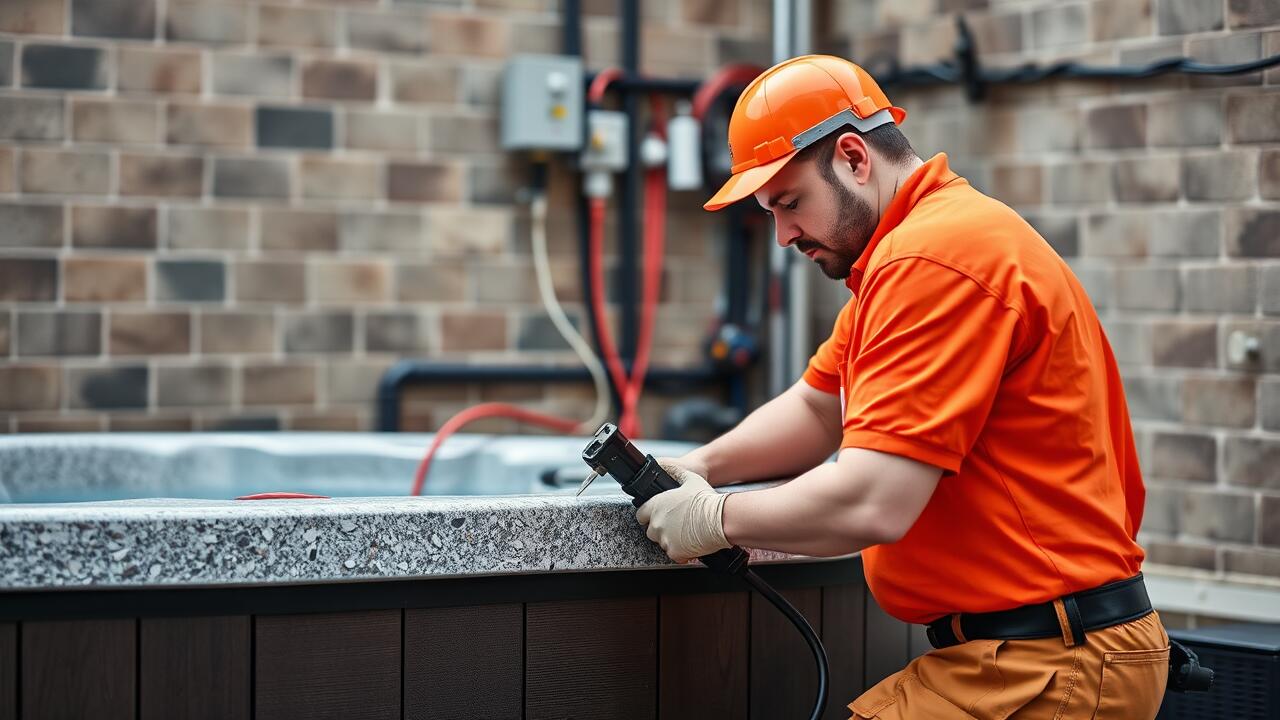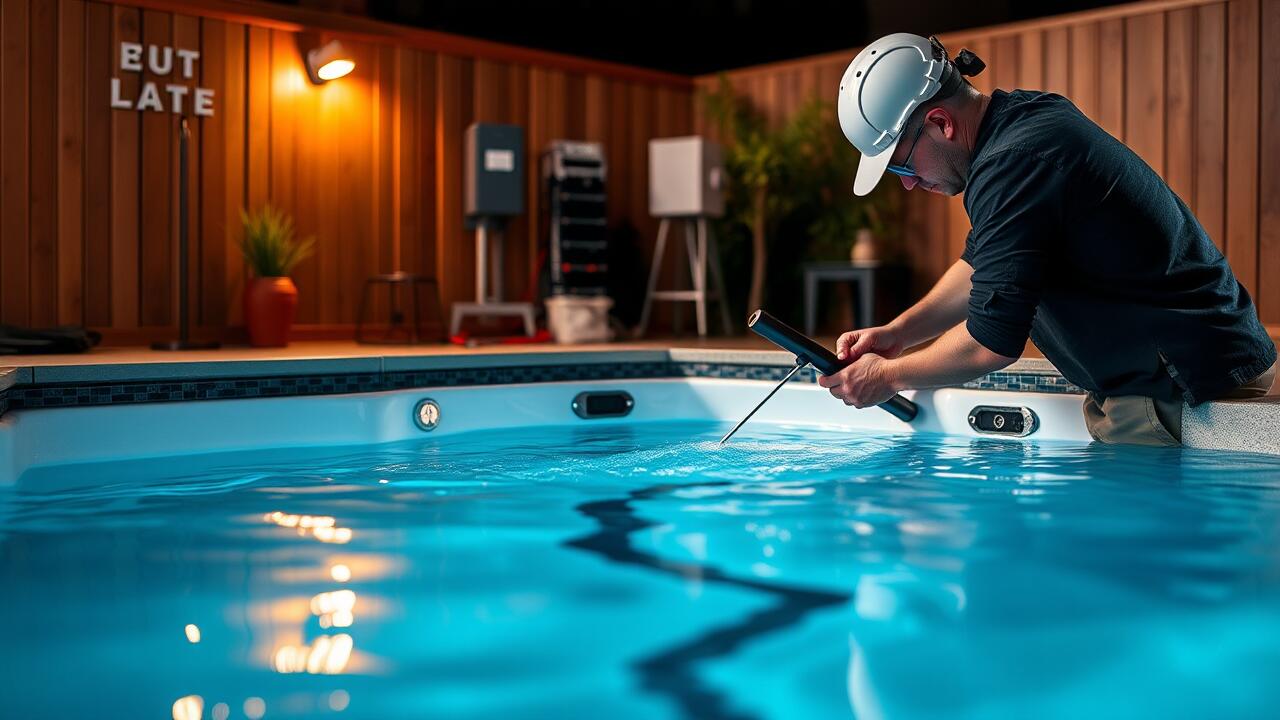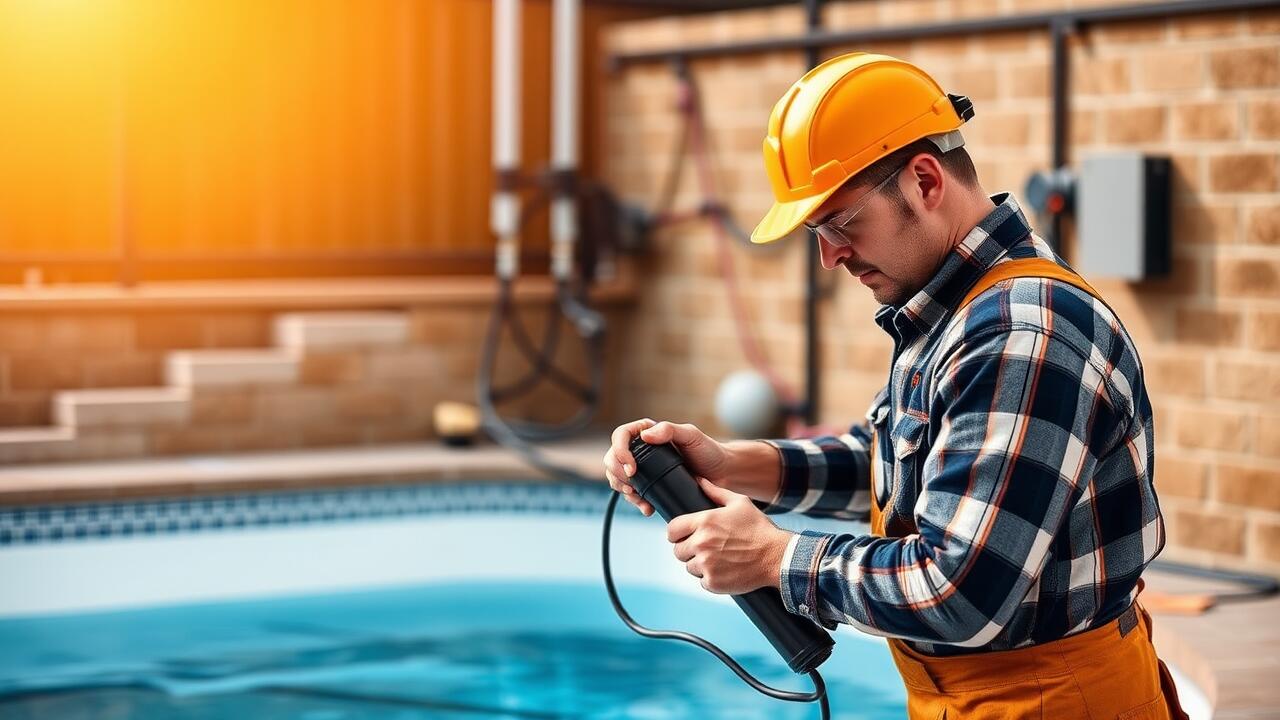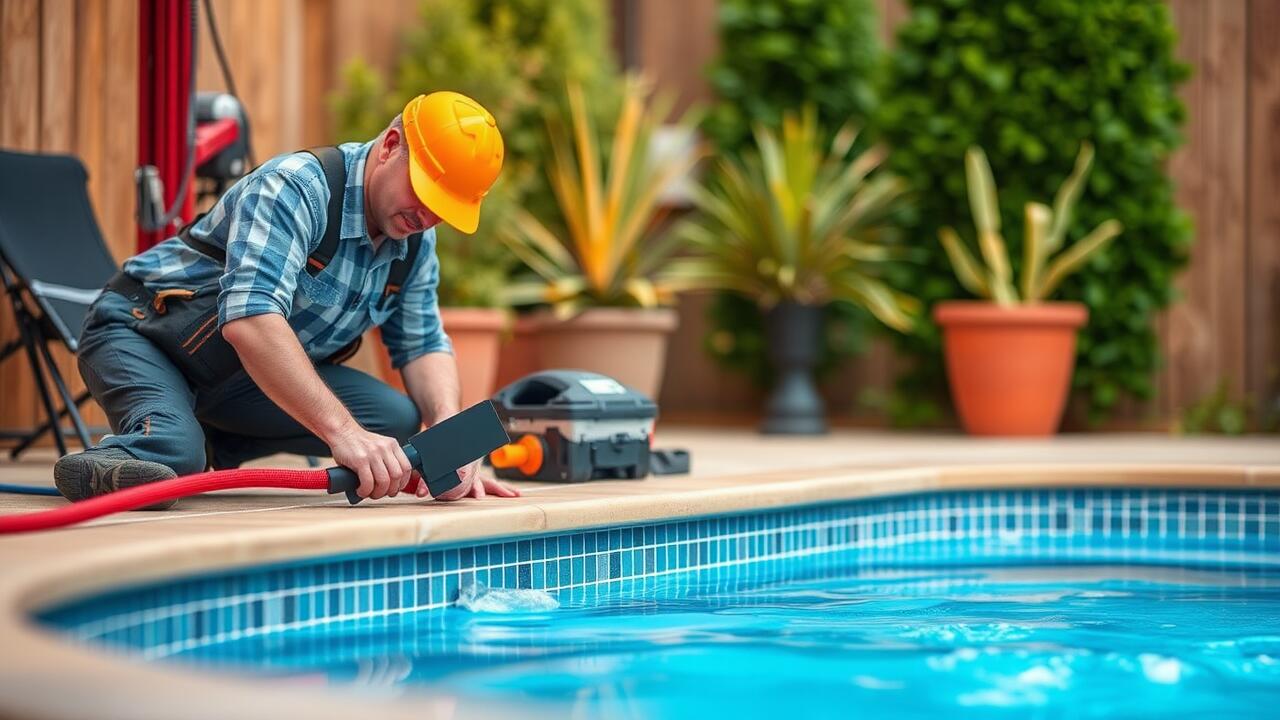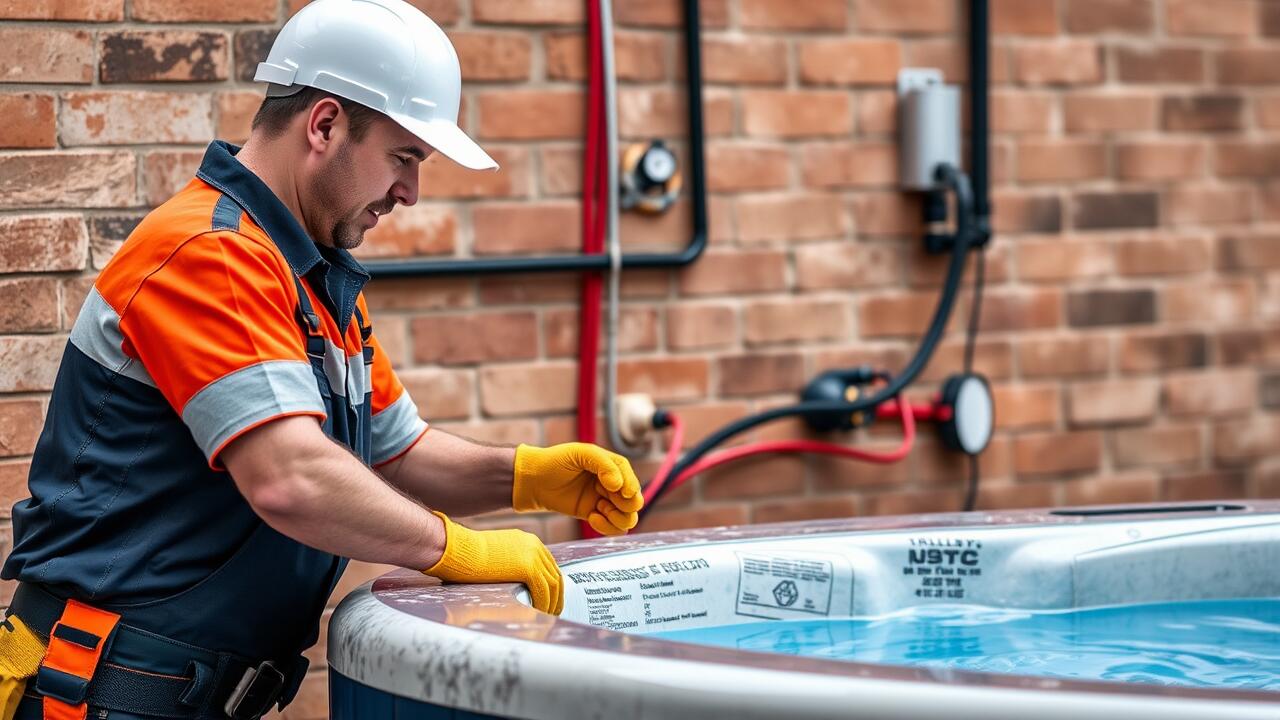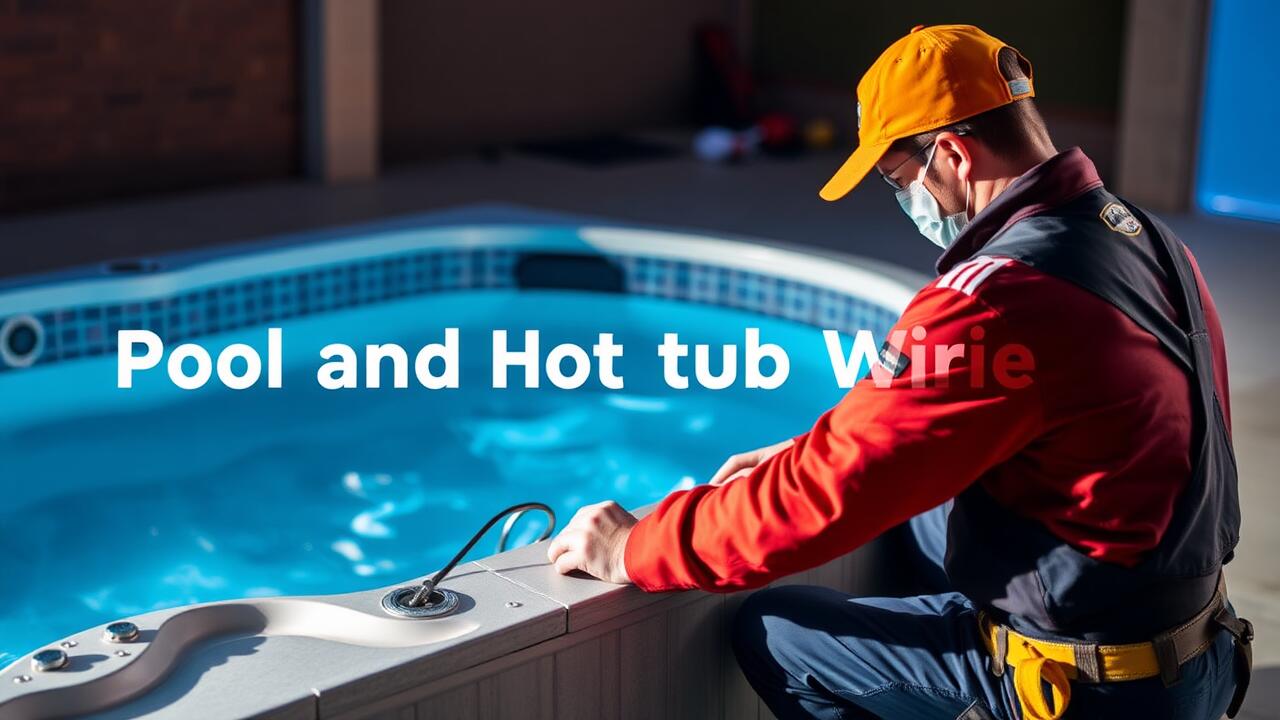
Local Codes and Standards for Pool Wiring
Local building codes play a crucial role in regulating wiring for pools and hot tubs. These codes ensure that installations meet necessary safety standards to protect users and property. For residents, understanding local codes is vital when planning to install an above-ground or in-ground pool. The regulations may differ based on the type of pool and its placement on the property. Homeowners in Sharpstown, Houston, should pay attention to the guidelines for proper installation and wiring practices.
When it comes to compliance, the National Electrical Code (NEC) provides a framework that local codes often adapt. Specific requirements, including wire types, circuit breakers, and grounding techniques, are outlined in these regulations. Individuals looking to install a pool can benefit from consulting the local codes for their area. For example, Pool and Hot Tub Wiring in Sharpstown, Houston, incorporates unique safety measures that residents must observe to ensure both compliance and safety.
How Regulations Vary by Region
Wiring regulations for pools can greatly differ based on location, reflecting local conditions and safety concerns. In areas with a higher risk of flooding, for instance, stricter guidelines may be enforced to protect electrical components. Some regions require specific types of materials or installation techniques to ensure compliance with safety standards.
For example, “Pool and Hot Tub Wiring in Montrose, Houston” adheres to the National Electrical Code while also considering local adaptations. Homeowners in this area must be aware of unique requirements that may not apply in other regions. Knowledge of these specific regulations is essential for safe and compliant installation of pool wiring systems.
Essential Components of Pool Wiring Systems
An effective pool wiring system hinges on several essential components that enhance safety and functionality. Circuit breakers are crucial in protecting the electrical system from overloads, while ground fault circuit interrupters (GFCIs) automatically shut off electricity to prevent electrical shock. Proper conduits ensure that wiring remains protected from moisture and physical damage, especially in areas exposed to water. Understanding these components is vital for maintaining a safe environment around the pool area.
When considering a pool installation or renovation, knowledge of specific components becomes even more critical. In Clear Lake City, Houston, the local regulations regarding Pool and Hot Tub Wiring in Clear Lake City, Houston demand adherence to stringent safety standards. This reinforces the importance of using high-quality materials and following best practices when setting up electrical systems. Homeowners should keep in mind that a reliable wiring system not only supports the equipment but also ensures a safe recreational space for family and friends.
Understanding Breakers, GFCIs, and Conduits
Breakers, Ground Fault Circuit Interrupters (GFCIs), and conduits are essential components of safe wiring systems for swimming pools. Breakers serve as the first line of defense against electrical overloads and short circuits, automatically shutting off power when necessary. GFCIs are crucial in wet environments, providing extra protection by cutting off the electrical supply if they detect a ground fault. This feature is especially vital for pool areas, where moisture can create hazardous conditions. For those needing guidance on best practices, the standards for Pool and Hot Tub Wiring in Clear Lake City, Houston are particularly stringent and designed to enhance safety.
Conduits play a significant role in protecting electrical wires from damage while providing a safe path for electricity. Proper installation of conduits is required to ensure the protection of wiring from physical damage, moisture, and other environmental factors. The choice of conduit material can depend on local regulations, environmental conditions, and specific site needs. In areas like Clear Lake City, Houston, adherence to rigorous wiring codes ensures that both above-ground and in-ground pool installations meet safety standards and function effectively. This attention to detail can prevent future issues and enhance the overall safety of the swimming area.
DIY Wiring vs. Professional Installation
For many homeowners, the allure of DIY projects can be strong, particularly when it comes to wiring for pools and hot tubs. The prospect of saving money and having complete control over the installation can be appealing. However, DIY wiring also comes with significant risks, especially when dealing with the electrical systems integral to above-ground and in-ground pools. Proper knowledge of local codes and regulations is essential to ensure safety and compliance with standards. Pool and Hot Tub Wiring in West University Place, Houston, is governed by specific requirements that must be meticulously followed to prevent hazards.
On the other hand, professional installation offers a layer of expertise and peace of mind that DIY projects may lack. Electricians specializing in pool wiring are equipped with the necessary training and tools to handle complex electrical systems safely. They have a comprehensive understanding of local regulations, ensuring that all work performed meets legal standards. Investing in professional services might seem costly upfront, but it can prevent future issues and guarantee that the installation is performed safely and efficiently.
Weighing Risks and Benefits for Homeowners
When considering DIY wiring for pools, homeowners must weigh the potential cost savings against the risks involved. While tackling a project on one's own can seem appealing, it often leads to oversights or errors. Misjudgments in electrical work can result in safety hazards, including electric shock or fire. Homeowners should also consider their understanding of local regulations. Pool and Hot Tub Wiring in Montrose, Houston has specific requirements that may be challenging for non-professionals to navigate.
Opting for professional installation can provide peace of mind and ensure compliance with safety standards. Licensed electricians possess the knowledge needed to handle complex electrical systems safely. They are better equipped to manage the intricacies of local codes, minimizing the risk of future complications. Though the initial expense may be higher, the long-term benefits of a securely wired pool can outweigh the costs associated with potential repairs or safety hazards.
FAQS
What are the primary differences in wiring regulations between above-ground and in-ground pools?
The primary differences often revolve around the depth of installation, the types of equipment used, and specific local codes that may apply differently to above-ground and in-ground installations. In-ground pools usually require more extensive wiring systems and compliance with stricter regulations due to their permanent nature.
Why are local codes and standards important for pool wiring?
Local codes and standards are important because they ensure safety and compliance with regional regulations. These codes can dictate the types of materials used, installation techniques, and safety measures like grounding and bonding, which help to prevent electrical hazards.
What essential components should be included in a pool wiring system?
Essential components typically include breakers, Ground Fault Circuit Interrupters (GFCIs), and conduits. These components work together to ensure that the electrical system is safe and effective, protecting against electrical shocks and short circuits.
Can I install the pool wiring myself, or should I hire a professional?
While some homeowners may attempt DIY wiring, it is generally advisable to hire a professional electrician, especially for in-ground pools, due to the complexity and strict regulations involved. A professional can ensure that the installation meets all safety standards and local codes.
What are the risks associated with DIY pool wiring?
The risks include potential electrical hazards, code violations, and improper installations that could lead to equipment failure or safety issues. Inadequate wiring can pose serious dangers, including electrocution, which is why seeking professional help is often recommended.
